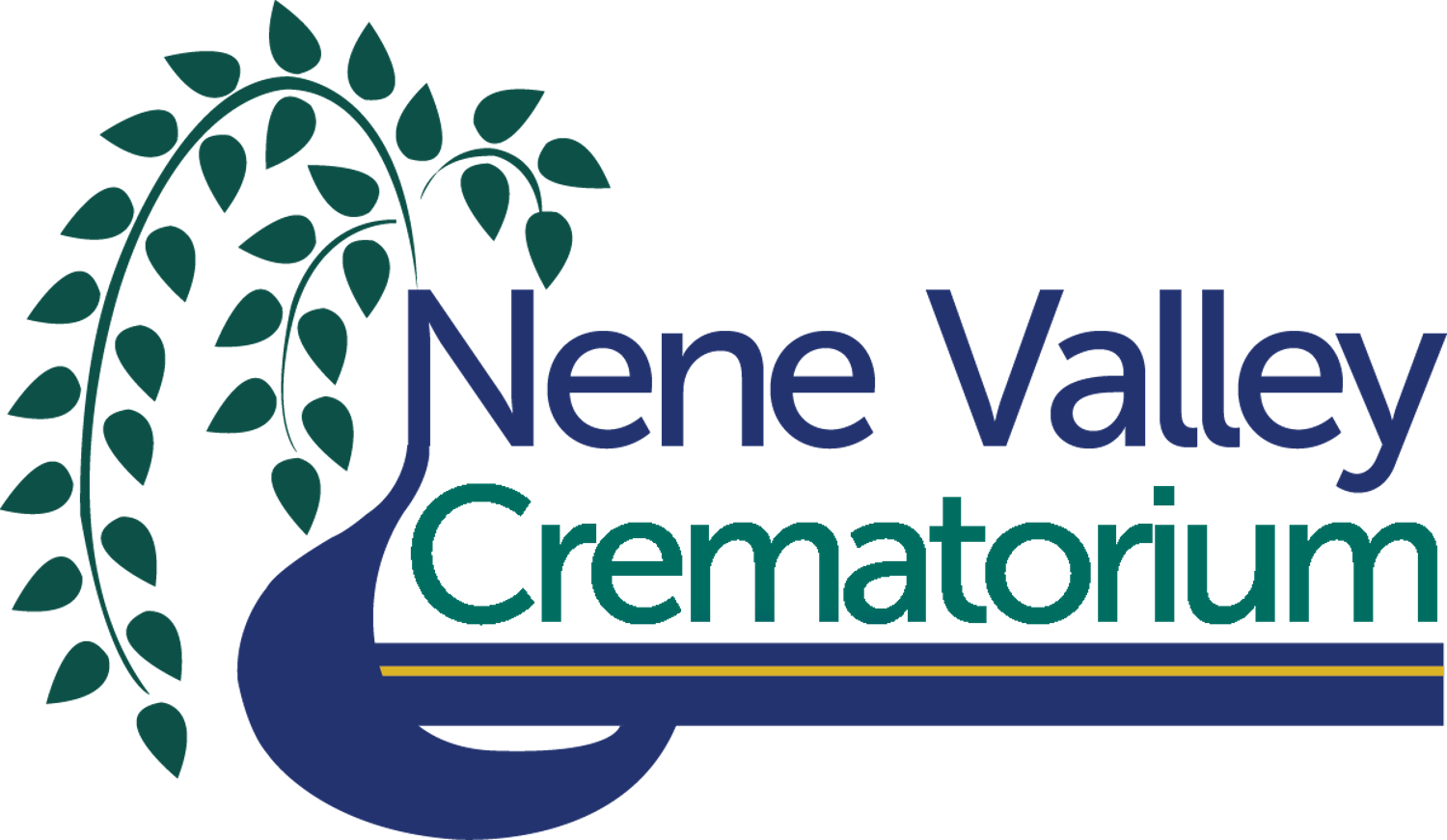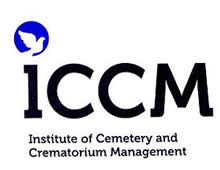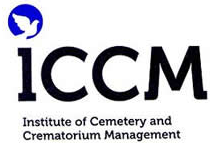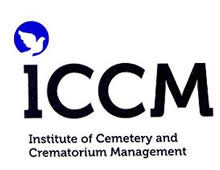White Geraniums
"symbolising comfort"
Policies
✧
Company Policies
Nene Valley Crematorium is a member of the Institute of Cemetery and Crematorium Management (ICCM) and operates within the Guiding Principles for Cemeteries and Crematoria. As a member of ICCM, Nene Valley Crematorium follows the high standards of service set forth in the Charter for the Bereaved. The Charter contains a series of objectives and priorities for the future of the crematoria industry.
You can read more about our code of conduct and practice policy for corporate members here.
The crematorium is committed to adopting best practice to ensure that cremations take place in a respectful and effective way. It is guided by the Institute of Cemetery and Crematoria Management (ICCM) in its Charter for the Bereaved. We must also conform to the requirements of the Environmental Protection Act 1990, with strict limits on emissions.
Complaints
Procedure
The Complaints Policy and Procedure provides the framework within which:
– Anyone who has experienced dissatisfaction with the crematorium’s services can raise their concerns;
– Staff will deal with complaints from bereaved people, funeral directors, ceremony leaders, contractors, residents, visitors and others, and a process is put in place to ensure continuous improvements to the service provided.
Recycling
of Metals
The crematorium has joined the ICCM metals recycling scheme where consent to recycle residual metal is obtained from the applicant for cremation. All proceeds from the scheme are donated to charities, but the family has the right to request that any metals are returned to them after the cremation.
Holding Over
Policy
There may be rare occasions when a cremation cannot take place on the day of the funeral and is ‘held over’ until the next day. Details of the reasons for this, and the guidelines followed, are set out in our policy. This is not a standard occurrence and families can opt out of this if they wish to do so.
Unacceptable
Customer Behaviour
Although the vast majority of contacts between customers and crematorium staff are conducted in a polite and courteous way, it is recognised that confrontational situations can arise.
Complaints
Procedure
The Complaints Policy and Procedure provides the framework within which:
– Anyone who has experienced dissatisfaction with the crematorium’s services can raise their concerns;
– Staff will deal with complaints from bereaved people, funeral directors, ceremony leaders, contractors, residents, visitors and others, and a process is put in place to ensure continuous improvements to the service provided.
Recycling
of
Metals
The crematorium has joined the ICCM metals recycling scheme where consent to recycle residual metal is obtained from the applicant for cremation. All proceeds from the scheme are donated to charities, but the family has the right to request that any metals are returned to them after the cremation.
Holding
Over
Policy
There may be rare occasions when a cremation cannot take place on the day of the funeral and is ‘held over’ until the next day. Details of the reasons for this, and the guidelines followed, are set out in our policy. This is not a standard occurrence and families can opt out of this if they wish to do so.
Unacceptable Customer Behaviour
Although the vast majority of contacts between customers and crematorium staff are conducted in a polite and courteous way, it is recognised that confrontational situations can arise.
Complaints
Procedure
The Complaints Policy and Procedure provides the framework within which:
– Anyone who has experienced dissatisfaction with the crematorium’s services can raise their concerns;
– Staff will deal with complaints from bereaved people, funeral directors, ceremony leaders, contractors, residents, visitors and others, and a process is put in place to ensure continuous improvements to the service provided.
Recycling
of Metals
The crematorium has joined the ICCM metals recycling scheme where consent to recycle residual metal is obtained from the applicant for cremation. All proceeds from the scheme are donated to charities, but the family has the right to request that any metals are returned to them after the cremation.
Holding Over
Policy
There may be rare occasions when a cremation cannot take place on the day of the funeral and is ‘held over’ until the next day. Details of the reasons for this, and the guidelines followed, are set out in our policy. This is not a standard occurrence and families can opt out of this if they wish to do so.
Unacceptable Customer Behaviour
Although the vast majority of contacts between customers and crematorium staff are conducted in a polite and courteous way, it is recognised that confrontational situations can arise.
Infant (Babies and Children) Cremation Policy Statement
Introduction
In accordance with the recommendations of Lord Bonomy’s Infant Cremation Commission of June 2014 (Scotland) – the full statement is located at http://www.gov.scot/Publications/2014/06/8342/3), and the joint guidance of: Association of Private Crematoria and Cemeteries, (APCC) the Cremation Society of Great Britain, (CSGB) The Federation of Burial and Cremation Authorities (FBCA) and the Institute of Cemetery and Crematorium Management (ICCM), where it is recommended for all cremation authorities involved in the infants (including non-viable foetuses) should make use of the best available techniques (BAT) to maximise the recovery of ashes from the cremation process.
The APCC, CSGB, FBCA and ICCM, already recognise the Commission’s definition that ashes are ‘all that is left within the cremator at the conclusion of the cremation process and following the extraction of all metal’. It is advised that consent is obtained to separately dispose of metal removed from ashes in a legally acceptable manner.
Therefore, in compliance with this ‘Joint Guidance – Best Practice Guidance for Infant Cremation – England and Wales’ the company has formulated an infant (baby and children) policy statement to assist in meeting ‘best practice’ requirements, in conjunction with other associated legislation and codes of practice and internal processes.
This statement sets out the company’s general policy on baby and children cremation and outlines the organisation and arrangements in place for putting this policy into practice.
Statement of Intent
a) The company recognises and accepts its responsibilities regarding the operation of best practice techniques within its Crematorium and is committed to following the profession’s guidance. The company will adopt the recommendations within Lord Bonomy’s report that relate to the definition of cremated remains and ashes as being one of the same.
b) The manager of the crematorium is responsible for the company’s baby and children’s policy and will ensure that suitable arrangements through procedures and checklists are in place for putting the policy into practice – to be managed daily by the operations manager or in their absence, other first line managers (supervisors), with plans for it to be reviewed, updated or amended as necessary.
c) The manager of the crematorium is responsible for implementing the policy, and for ensuring effective monitoring and review of control systems. To ensure the babies and children’s policy is managed effectively, the manager and supervisors must be aware of, and accept, their individual roles and responsibilities to ensure ‘best practice’ is always adopted for the cremation of babies and children’s cremation, as expected by others. The manager will ensure that persons with responsibilities for managing the babies and children cremations are actioned by others who are competent and trained in their responsibilities as required.
d) The aim of this policy is to ensure that so far as is reasonably practicable the company provides its services using systems of work and in an environment, which is fit for purpose to carry out baby and children cremations without risk to not meet customer expectation.
e) Employees also have a duty whilst at work to take reasonable care of their individual self-awareness, being compliant with the associated procedural and checklist documents and that of others who may be affected by their actions or omissions.
f) The company will ensure that as part of the policy, prudent processes are in place to provide an audit trail from the receipt of funeral instructions to the final release of ashes, either by collection from the crematorium or by laying to rest by scattering or burial within the Garden of Remembrance.
g) The company is committed to supporting staff with their continuing professional development and will provide, staff who are qualified to the ICCM standard, and so far as is reasonably practicable, the professions guidance, internal procedural advice notes and definition systems of work to cover effectively all material aspects of ‘best practice’ for baby and children cremations, to meet or exceed customer expectation.
h) The company is further committed to adopting the ICCM Baby and Infant Cremations – UK Accreditation
Scheme, by providing a senior cremator technician to oversee and act as mentor for all other technicians, to ensure the recovery of ashes is maximised. Once accredited a senior technician can conduct the formal observations required.
The company is confident that they will meet a 100% retention of ashes for bereaved parents, but in the unlikely event that the adapted (from adult cremation) processes within this policy were not followed, resulting in the non-recovery of ashes, it is the policy of the company to immediately investigate – to conduct a review of the cremation process to understand why this occurred. The result of this review will be documented and contain details of an outcome, and if internal procedures require amendment, this, and any associated staff issue will be actioned via the company’s internal processes.
j) The company will provide the same level of excellent care for the ashes of babies and children that is always carried out for the ashes of adults. This includes:
Observing statutory administrative processes (despite not being required for non-viable foetuses under 24 weeks gestation) This provides a moral code and implies care.
Compliance – with robust internal processes associated with an identification procedure. This provides reassurance to bereaved people that the ashes resulting from individual cremations are those of their loved ones.
Consent – to act upon the written instruction of the applicant or another person (following receipt of written consent from the applicant), and to take instruction from a Hospital representative, who is acting as the applicant.
Ashes – where instruction is not for collection, these will be held at the crematorium indefinitely at no cost. This is subject to change as the crematorium capacity to store ashes reduces. Periodic verbal contact with bereaved people about the collection of ashes and/or choice for a final resting place occurs – after a reasonable period a letter is sent to the applicant reminding them of their options, with a follow up letter after two weeks – where no instructions are received a final letter, providing notice that the ashes will be scattered in the garden of remembrance 14 days from the date of the letter. Where ashes are to be collected, the details of any person authorised by the applicant to collect the ashes, and the date on which the ashes were collected will be recorded, as will any final resting place location.
5. Metals – to take written instruction from the applicant on their choice for the recovery of metal from the ash recovery to support a sensitive recycling scheme. From experience we know that this can provide comfort for those bereft, knowing that they are helping to raise funds for death related charities.
Records – attention paid by diligent staff for the safe keeping of all documentation (forms and certificates) associated with cremation, including the final resting place within the Garden of Remembrance. These records are kept indefinitely (in electronic form) to allow for future generations to locate the final resting place of loved ones.
Objectives
1) To have in place an effective team ethos towards the sensitivity surrounding the funeral and subsequent cremation of babies and children – management arrangements for identifying acceptable and unacceptable standards from an output perspective relating to the BAT. And for all team members to know this outcome standard, aligned with commitment from cremator technicians to adopt this policy, and ensuring suitable controls are taken to prevent a decline in this BAT. We promise to:
2)Always provide initial information surrounding the choice between burial and cremation to enable an informed decision to be reached. This is because the best endeavours of staff to maximise the return of ashes from cremation is paramount, but ashes recovered, may be the coffin only – this is generally a result of the cremation for a nonviable foetus. Therefore, a parent may decide to favour burial over cremation.
3)Sensitively tailor funerals and the subsequent cremation for babies and children, by adapting how we utilise equipment and procedural manuals for adults. This demonstrates compliance with the profession’s manufacturers and organisations, which conveys a message of care to bereaved parents that their little loved ones are in ‘safe hands’.
3a)Use a catafalque for placing a baby or child’s coffin on, with teddies for company. This catafalque is then positioned in a place of the parent’s choice within the ceremony hall/chapel. This avoids the coffin appearing lost on an adult catafalque.
4)Cremate at the end of a working shift, so that the coffin is placed into a hot cremator and monitored by a technician to ensure time is taken for a positive outcome for the recovery of ashes with a fitting appearance. This allows for a slow cremation, without the need for full combustion, avoids potential health and safety issues and provides the right result.
5)Use special control techniques on the cremator via its computer programme. An ‘Infant’ setting is programmed on the cremator to protect the delicate baby or child during the cremation process. This maximises subsequent recovery of ash.
6)Use a special purpose baby or child cremation tray for the placement of the coffin, to allow for careful placing of the coffin into the cremator. This provides added protection, a safe space for the collection of tiny bones that may otherwise be lost during the ashing out process.
7)To not place the tray directly under the primary chamber burner unit but position the tray where the technician can easily observe the coffin throughout the cremation process. Where necessary, when turbulence in the cremation chamber is experienced, an element of manual control (manual override) can be adopted to reduce turbulence. This avoids potential loss of ash.
8)Place a coffin for those children whose coffin does not fit on the children’s tray, directly onto the hearth of the cremator, away from the primary burner, and remain vigilant and adopt manual controls as described at points 6 and 7.
9)Provide a vigilant cremator technician who is trained and qualified to the profession’s minimum standard, who will carefully monitor the cremation to ensure a balance occurs between required good combustion whilst avoiding excessive turbulence, (as far as is possible) by adopting manual controls when necessary to ensure that the turbulence is minimised. This provides further reassurance that every effort is made for maximum recovery of ash.
10)To remove the coffin through the cremator door, rather than through the ash door, (which occurs with adult cremations) to maximise recovery of ash. This provides further reassurance that every effort is carried out to ensure ashes are recovered.
11)Adopt bespoke risk assessments for managing a hot tray. This provides reassurance for bereaved parents that their little loved one is being handled safely with care.
12)Not to use a cremulator, (a machine that reduces ash further for collection) as with adult cremations, but to sensitively reduce by hand with a mortar and pestle. This avoids an unnecessary aggressive process, which displays care and consideration to bereaved parents for the babies and children in our care.
13)Provide a tailored receptacle for babies and children’s ashes, in terms of size and design. Various sizes and gender specific designs are available that include a neutral teddy design where gender is unknown. This provides bereaved parents with comfort, knowing that considered decisions have been taken by the company.
14)In accordance with the ICCM Policy for the Cremation of Stillborn, Miscarriage, Non-viable Foetus and Neonatal Deaths, provide a proposal for consideration by the company’s board of directors to consider provision of a dedicated facility for the final resting place within the crematorium’s Garden of Remembrance for babies and children.
14a. In a dedicated garden, where a shared baby cremation has been chosen, which means that babies are cremated together. These babies will be laid to rest together in a dedicated area within this garden. The same process for individual cremation will occur for the shared cremation of babies. It is known that this can provide comfort to bereaved parents, knowing that their baby is with other babies.
15)Respond to any questions you may have surrounding this policy and the trust you have provided by allowing us to care for your baby or child, until we return that care to you. We are available at the crematorium reception, 7 days per week, between 9am to 5pm (01933 229660) or via enquiries@nenevalleycrematorium.co.uk
Arrangements
1) The company will arrange for the provision of competent and technical advice on the cremation of babies and children topic. The manager will be responsible for ensuring through first line managers that the ‘BAT’ and the completion of checklists/handover control processes, always occurs. The first line managers will be responsible for implementation of a clear working procedure, and where required ensure a record of repairs and maintenance and systems of work for all core activities are undertaken.
2) The company will actively involve employees at the crematorium, and there will be an opportunity for the cremation of baby and children matters to be raised at team meetings or individually.
3) The company reminds all its employees, whatever their status, of their duties under The Charter for the Bereaved, The Cremation (England and Wales) Regulations 2008 (as amended) Act, Health and Safety at Work Act 1974 and the aforementioned ‘Joint Guidance – Best Practice Guidance for Infant Cremation – England and Wales’ requirement, in conjunction with other associated legislation and Codes of Practice and internal processes, to take care of their own responsibilities competently and that of others if/when required. They need to also cooperate with management to enable them to carry out their responsibilities successfully.
4) A copy of this Baby and Children Policy Statement will be incorporated into the Policy section of the company’s Business Service Manual, together with procedures and checklist documents. All documents will be added to or modified as legislation, or the local situation dictates.
Follow Us
Registered in the UK.
Company registration number: 09932293
Nene Valley Crematorium is a trading name of Wellingborough Bereavement Services Ltd.
This is a wholly owned subsidiary of
North Northamptonshire Council.
The company's registered office is
Bowling Green Road, Kettering,
Northants, NN15 7QX
Powered by LocaliQ
Contact Us
We will get back to you as soon as possible.
Please try again later.







